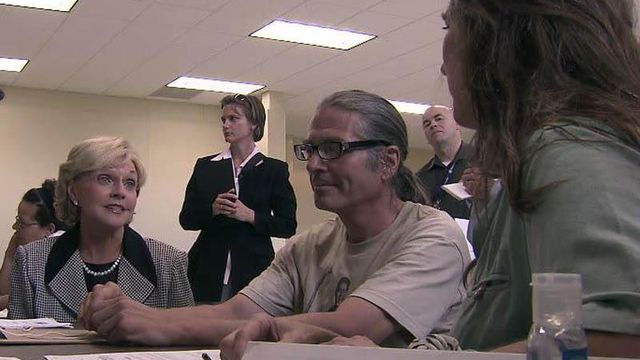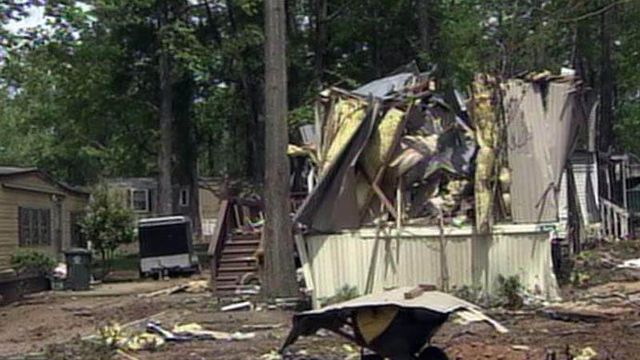FEMA response frustrates Raleigh storm victims
Federal funds may be coming, but the bulk of the state's tornado recovery depends heavily on the work of volunteers., Gov. Beverly Perdue said Tuesday.
Posted — UpdatedThe Federal Emergency Management Agency opened its ninth field office in North Carolina on Tuesday to process aid applications from people whose homes and businesses were hit by the April 16 tornadoes. Yet, people in some hard-hit neighborhoods said FEMA is providing little assistance.
"I see them every day, and I ask them every day what's their role, and every day they tell me, 'We'll let you know,'" said John Faison, who has been working in the Stony Brook North mobile home park since the day after the tornado hit.
The neighborhood, off Brentwood Road in northeast Raleigh, was devastated by the storm. Four children were killed in one home, and more than 50 residences were either destroyed or so heavily damaged that they are uninhabitable.
"We just came to help, but we stepped up because there was no help," said Faison, who runs a nonprofit that provides assistance to immigrants.
A number of Hispanic families live in Stony Brook North. FEMA officials have said some people who are in the country illegally are reluctant to ask for assistance because of fear of being found out.
"The Salvation Army was here doing a fantastic job, feeding this community and feeding the volunteers. We had an army of volunteers out here, but they pulled out on Saturday," Faison said, noting that he, his wife and a handful of others are now providing support for residents.
"They don't have water in their homes. They don't have electricity in their homes," he said.
Local churches have adopted 20 of the 60 or so families from the neighborhood who were left with no place to live after the tornado, he said.
Glen Sachtleben, FEMA's deputy coordinating officer for the tornado recovery, said he would look into what has been done at Stony Brook North, but he acknowledged that the recovery is "a community approach."
"The volunteer agencies can lend assistance," Sachtleben said. "No one wants to be left unhelped. We just have to determine who they are and where they are so we can provide that assistance, and that's part of the whole community concept, where the volunteer agencies become involved."
Lucinda Sager said she will have to rely on community volunteers or turn to an organization like Samaritan's Purse, because the government denied her damage claim after the storm knocked down dozens of trees on her property.
"All the trees are up by their roots," Sager said. "(They said) it's like I was a farmer and my crops got ruined, and they don't cover my crops. I'm saying, 'How's my tree like a crop?' Trees are like huge obstacles that have to be removed."
Her homeowners insurance won't cover removing the trees, because she has tenants in the house off Holly Ridge Farm Road in northeast Raleigh.
"I've been on the phone, on the Internet for three days," Sager said. "I have not left my house, trying to figure out what to do. I've gotten, like, zero help from our state and our government."
Perdue said she believes public resources are available for those who ask but that local efforts need to serve as a stopgap until the federal aid begins circulating through the communities affected by the storms.
"If volunteers want to step in and plug that gap, it's marvelous," she said. "I just can't find any reason for anybody anywhere in the state to feel like there is not support and assistance, because I've been out at least five days, and I have not seen such an outpouring of community support."
• Credits
Copyright 2024 by Capitol Broadcasting Company. All rights reserved. This material may not be published, broadcast, rewritten or redistributed.






